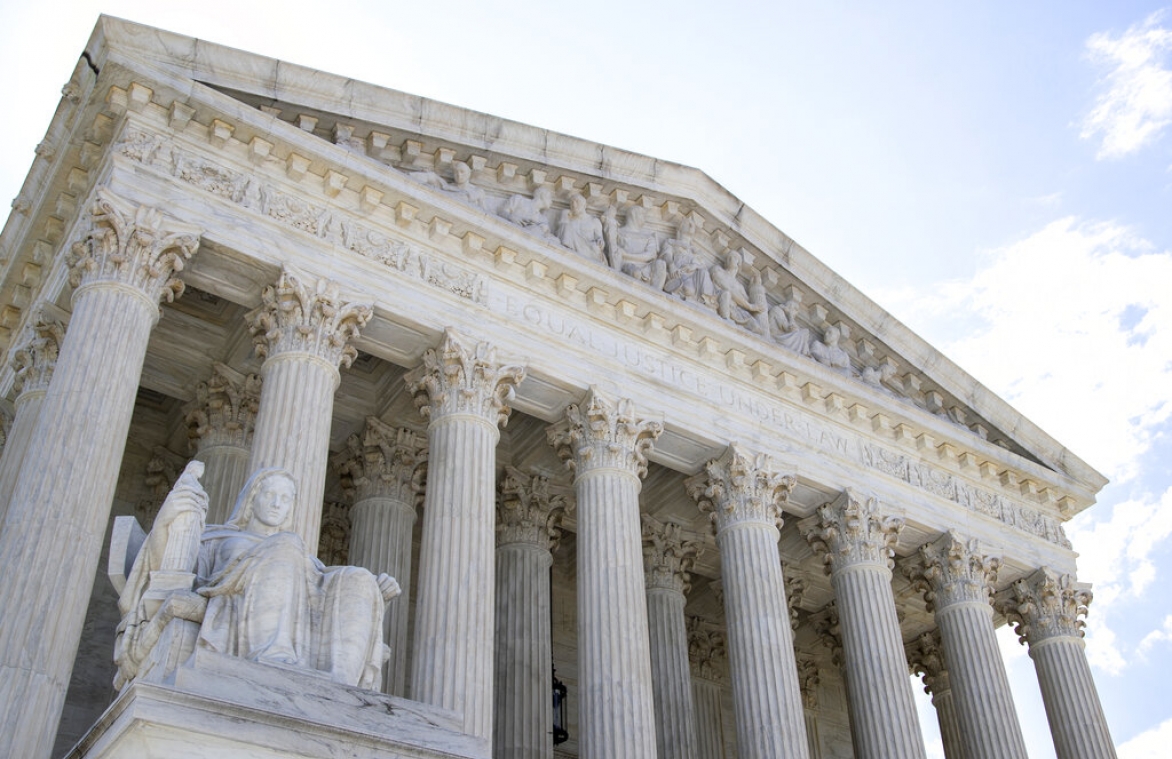The City of Austin, Texas’ regulations of off-premise signs — signs not located on the premises of a business — are not subject to the highest form of judicial review, strict scrutiny, the U.S. Supreme Court has ruled.
The Court’s decision April 21 in City of Austin v. Reagan National Advertising is significant, because the decision represents a departure from how the Court approached the content-discrimination principle in another sign case from 2015, Reed v. Town of Gilbert.
The Austin case involved an attempt by two billboard companies, Reagan National Advertising of Austin LLC and Lamar Advantage Outdoor Company, to obtain permits to digitize some of their off-premises billboards. The city denied the applications. Reagan sued in state court, alleging a violation of the First Amendment. The city removed the case to federal court and Lamar intervened as a plaintiff.
A federal district court ruled for the city, finding its sign ordinances content-neutral, because the distinctions between off-premises and on-premises signs focused only on the location of the signs, not their content. Because the district court found the ordinance content-neutral, it applied intermediate scrutiny and found that the ordinance was constitutional because it furthered the city’s substantial interest in aesthetics.
The billboard companies appealed to the 5th U.S. Circuit Court of Appeals, which reversed the lower court. The 5th Circuit reasoned that the ordinance’s distinction between off-premises and on-premises required a reader to inquire “who is the speaker and what is the speaker saying.” To the 5th Circuit, this fact served as the hallmark of a content-based law under Reed v. Town of Gilbert. Because the 5th Circuit found the ordinance content-based, it applied strict scrutiny and found the ordinance unconstitutional.
The city then appealed to the U.S. Supreme Court, which reversed the 5th Circuit and ruled for the city by a 6-3 vote. Writing for the majority, Justice Sonia Sotomayor reasoned that the off-premises/on-premises distinction was rooted more in location than content. She wrote that “the City’s off-premises distinction requires an examination of speech only in service of drawing neutral, location-based lines” and is “agnostic as to content.”
She distinguished the Reed v. Town of Gilbert case, in which an Arizona town had different restrictions on ideological signs, political signs, and temporary directional signs. There, the ordinance was clearly content-based. But according to Sotomayor, “the City’s provisions at issue here do not single out any topic or subject matter for differential treatment.”
The billboard companies argued that the Austin sign ordinance was content-based because the ordinance regulated speech on the basis of its function or purpose. But Sotomayor and most of the Court was not persuaded. Sotomayor reasoned that not all classifications that consider function or purpose are content-based. Furthermore, she emphasized that there is a long history of regulating off-premises signs.
Sotomayor acknowledged that if an ordinance has an impermissible purpose or justification, it could still be considered content-based. But, she wrote, that would require more examination by the lower courts, not the Supreme Court. The Court thus remanded the case back down to the 5th Circuit.
Justice Clarence Thomas — joined by Justices Neil Gorsuch and Amy Coney Barrett — wrote a dissenting opinion. Thomas, author of the Court’s main opinion in Reed, reasoned that the Austin ordinance imposes special restrictions on off-premises signs. He accused the majority of misinterpreting Reed and “replac[ing] it with an incoherent and malleable standard.”
Thomas emphasized that the Austin sign ordinance was clearly content-based because “[a] sign that conveys a message about off-premises activities is restricted, while one that conveys a message about on-premises activities is not.”
The Free Speech Center newsletter offers a digest of First Amendment and news media-related news every other week. Subscribe for free here: https://bit.ly/3kG9uiJ
David L. Hudson Jr. is a professor at Belmont University College of Law who writes and speaks regularly on First Amendment issues. He is the author of Let the Students Speak: A History of the Fight for Free Expression in American Schools (Beacon Press, 2011), and of First Amendment: Freedom of Speech (2012). Hudson is also the author of a 12-part lecture series, Freedom of Speech: Understanding the First Amendment (2018), and a 24-part lecture series, The American Constitution 101 (2019).

